Anthony Albanese told by Trump adviser to ‘have eyes open’ on Li Qiang
Donald Trump’s former Asia tsar Matt Pottinger has issued a warning to Anthony Albanese over his meeting with visiting Chinese Premier Li Qiang.
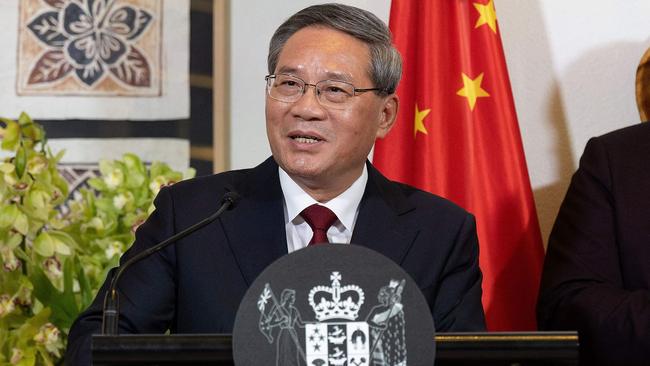
Donald Trump’s former Asia tsar Matt Pottinger has urged Anthony Albanese to have his “eyes wide open” when he meets visiting Chinese Premier Li Qiang, as former Home Affairs secretary Michael Pezzullo warned Labor’s preoccupation with stabilising ties with Beijing risked emboldening Chinese President Xi Jinping.
Mr Pottinger told The Weekend Australian leader-level contact with Beijing was important, but Mr Albanese said should not expect any real improvement in Beijing’s behaviour.
“I’m usually more sceptical about the sorts of activities that the Chinese Communist Party likes to lure governments into at the working level, where no real progress ever gets made,” the former deputy US national security adviser said ahead of Mr Li’s arrival in Australia on Saturday.
“It’s usually a system to stall and buy time and advance Chinese Communist Party interests.
“I think it’s reasonable that Australia’s Prime Minister and New Zealand’s leader would be meeting the Premier as well as the General Secretary (Xi Jinping), but to do so with eyes wide open.”

The advice from one of America’s most influential China advisers came as Mr Pezzullo warned it was a mistake to believe cautious diplomacy would have any impact on Chinese belligerence.
“There is now a risk of a new ‘imagined China’ emerging and embedding itself in official thinking,” the 2009 defence white paper author wrote in an article for the Australian Strategic Policy Institute. “Instead of continuing to work to rally like-minded nations against Chinese coercion, as we did in 2021, the alternative approach of quiet engagement … might yet entrench a dangerously benign view of the China challenge in official thinking.”
Mr Albanese has insisted his efforts to reopen dialogue with China have delivered real benefits to Australian exporters and enabled the government to call out dangerous conduct by the Chinese military in international waters and airspace.
But Mr Pezzullo, who was forced out of his job last year over a string of leaked messages in which he was critical of former ministers, said the Albanese government’s approach excused Chinese belligerence “on the basis that all great powers behave so”.
“This will see Australia abandon the hard-won gains of its resistance over recent years. China wants our silence – over human rights, Taiwan, territorial aggression, unsafe military activities, and more besides. We should not give it so readily,” he wrote.
The government’s policy appeared to be a “vain attempt at seeking an equilibrium” between the US and China, playing into Beijing’s efforts to undercut US alliance structures, he added.
“We should, however, resist such equivalence. We have a stake in this contest playing out such that US primacy, including its military superiority, is maintained,” he said.
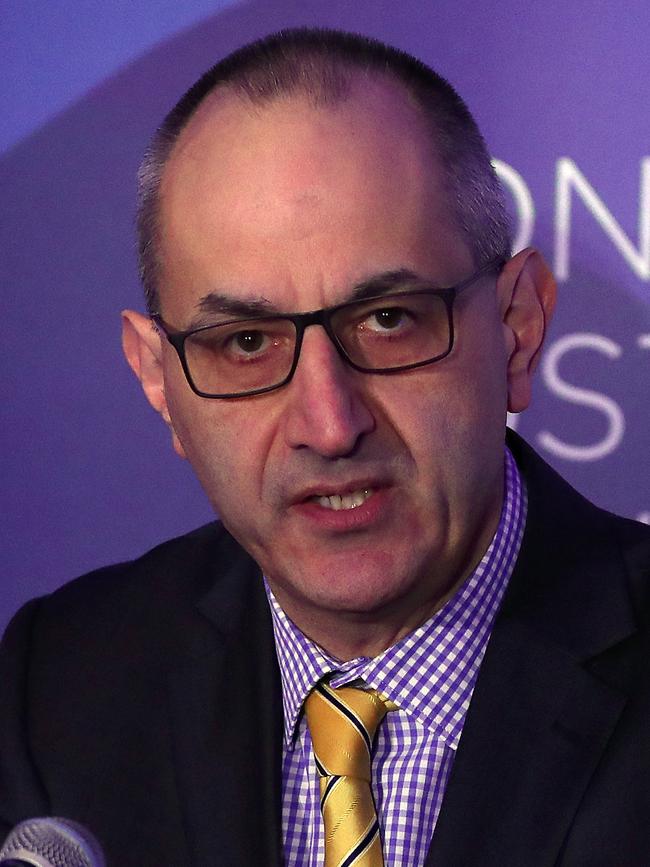
Preparations for Mr Li’s visit were in full swing in Canberra on Friday, with temporary security barriers erected around Parliament House and the city’s nearby Hyatt Hotel where the Chinese delegation will stay.
China’s No. 2 leader will fly into Adelaide on Saturday, where he will toast the resumption of Australian wine sales to his country and announce the loan of two new giant pandas to the city’s zoo.
He will meet behind closed doors with the Prime Minister in Canberra on Monday, amid fears of clashes between “patriotic” Chinese loyalists and human rights protesters who have vowed to descend on the capital.
Business leaders were cautiously upbeat ahead of Mr Li’s arrival, hoping for improved travel arrangements with China after the Premier granted visa-free entry to New Zealanders in talks with the country’s Prime Minister, Christopher Luxon, on Thursday.
Zichen Wang, a research fellow at Beijing’s Centre for China and Globalisation, said the decision was “extraordinarily notable”, given New Zealand’s status as a member of the Five Eyes intelligence-sharing network.
Australia China Business Council president David Olsson said his members would welcome the end of time-consuming visa processes, which requires prospective travellers to leave their passports at Chinese consulates for at least three days. “I would be pretty hopeful there will be a similar outcome here. It makes a lot of sense for China,” he said.
“They need to get people up there as much as we want to get up there – and it will eliminate all the frustrating processing issues.”
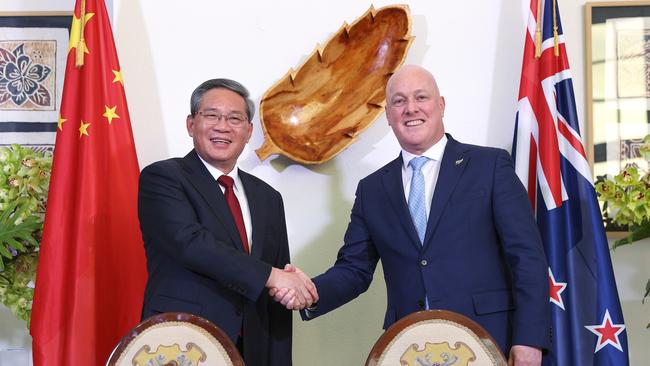
When Mr Albanese was in Beijing last November, he and Mr Li agreed to reciprocal three- to five-year multi-entry visas to kickstart business travel. But there has been no progress in the six months since his trip.
Australia’s omission from China’s visa-free list would be a pointed illustration of Beijing’s ongoing wariness about Canberra. US allies Japan and South Korea, whose leaders Mr Li met last month in Seoul, have both not been put on China’s visa-free list.
Australia’s lobster and beef industries, whose exports are still affected by Chinese trade bans, were yet to receive confirmation by Friday that Beijing’s almost four-year long blockages on their products would end. One businessman said there would be “deep despair” if the bans weren’t lifted during Mr Li’s visit.
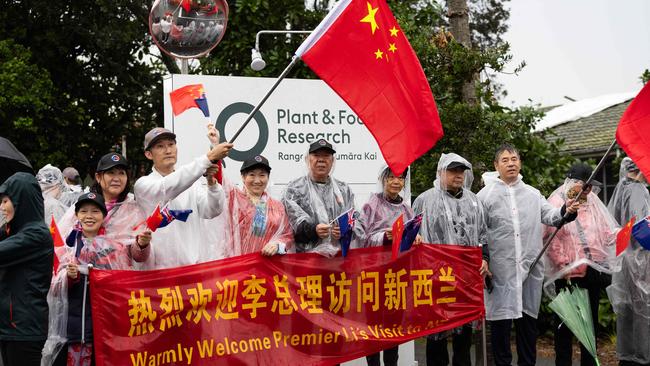
Australian Grape & Wine chief executive Lee McLean, whose members will attend a lunch with Mr Li on Sunday, said the industry was feeling “pretty positive” about the resumption of wine sales to China after Beijing axed its punitive trade bans on their products.
“There is a sense of relief, obviously,” Mr McLean said.
“But with just $86m in Australian wine exported to China in the past month, sales remain a long way off the $1.2bn worth of product the industry sold into the market in 2019.”
Additional reporting: Simon Benson

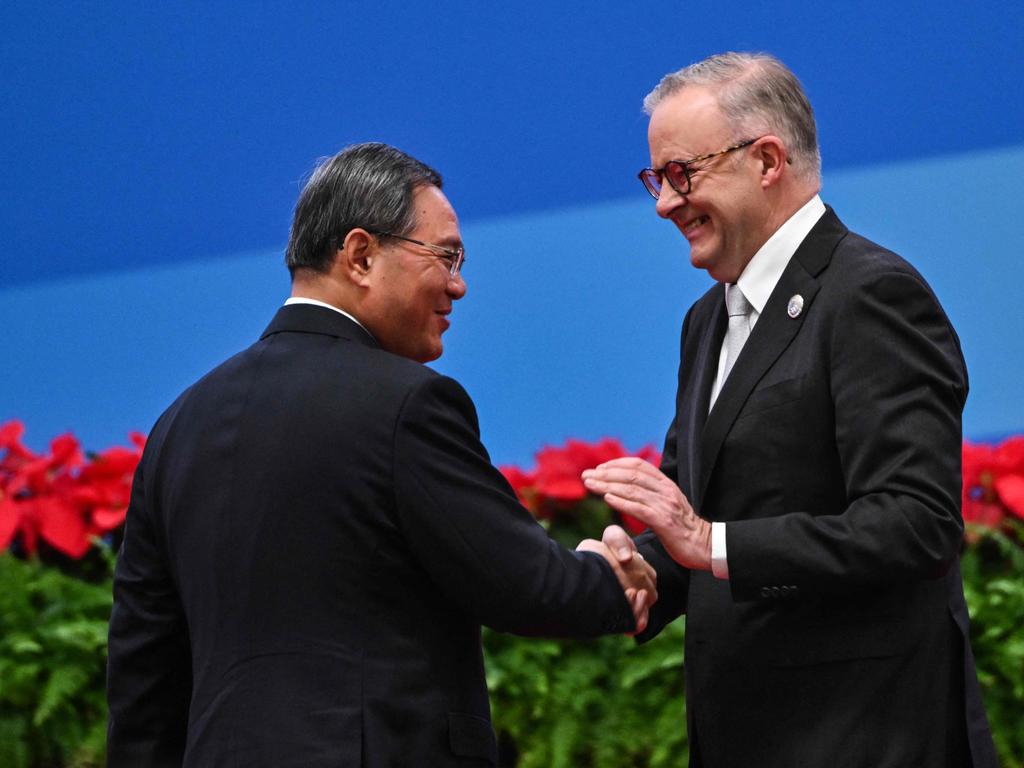
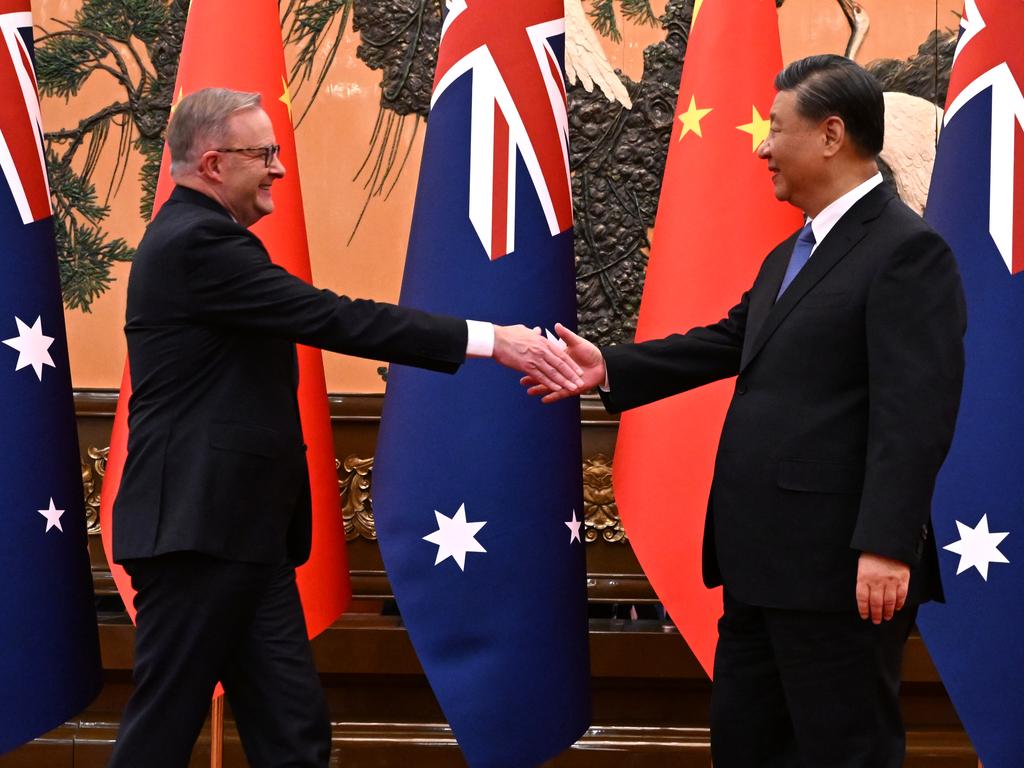
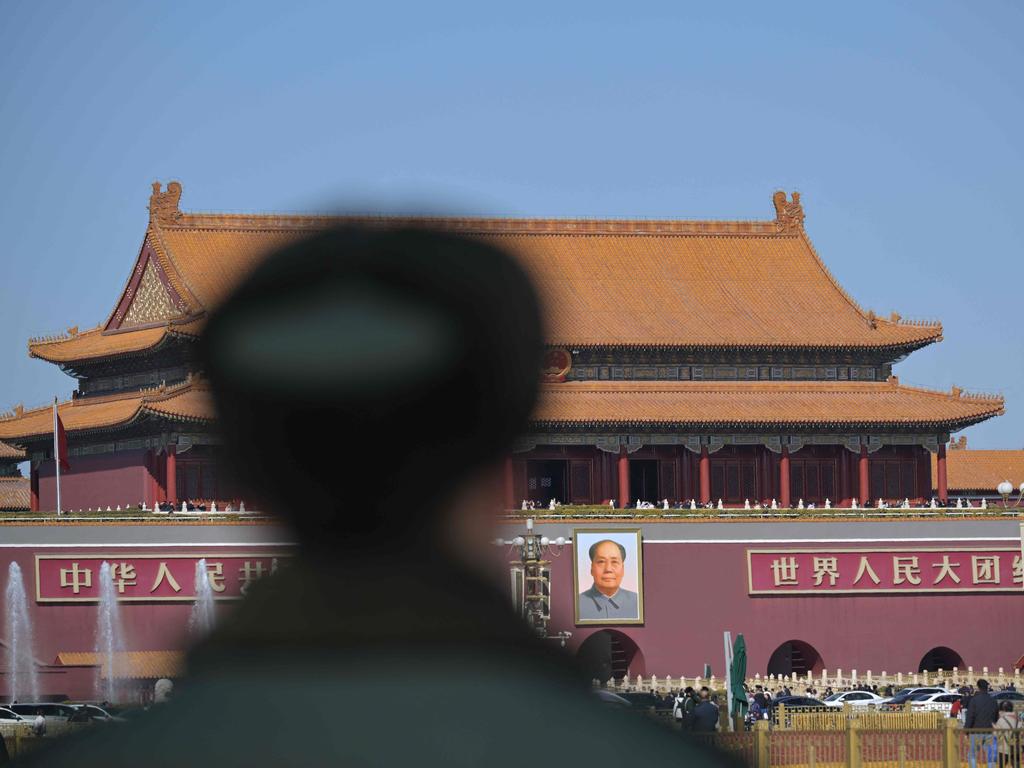



To join the conversation, please log in. Don't have an account? Register
Join the conversation, you are commenting as Logout